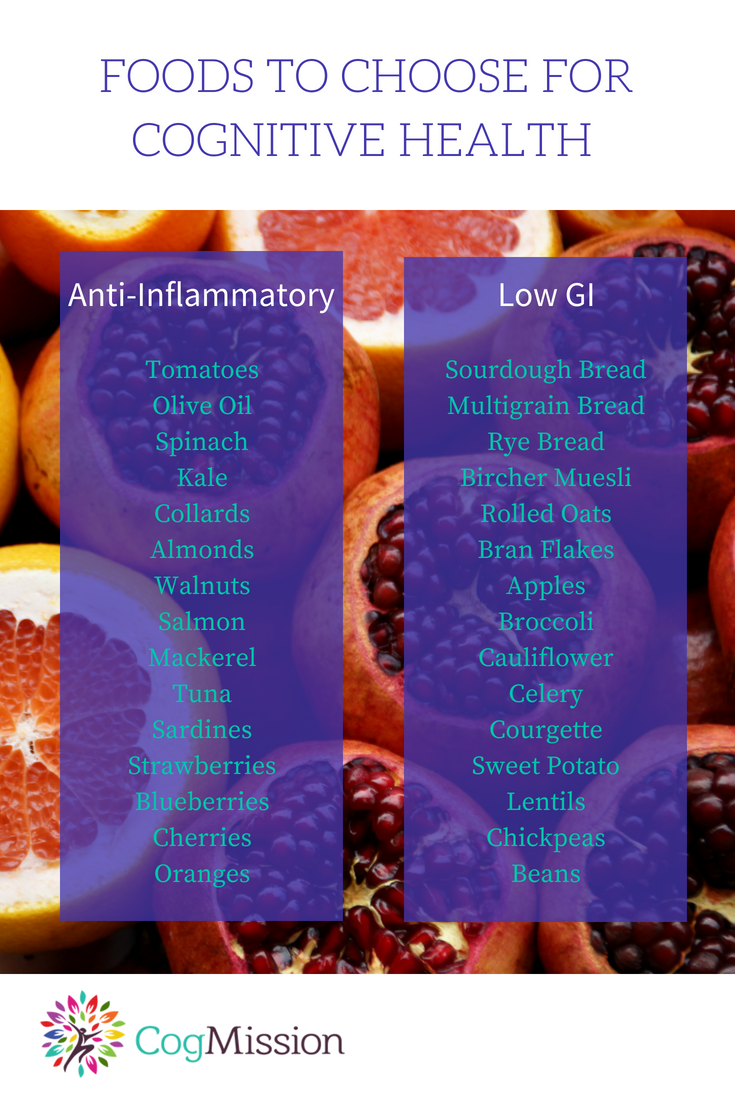Why Should You Follow A Mediterranean Diet to Prevent Cognitive Decline?
Recently, articles promoting the Mediterranean diet to prevent cognitive decline have been making a bit of impact on the news in the UK
This information is not new. In fact – it is further evidence to support the inclusion of a Mediterranean diet in the Bredesen Protocol, and the RECODE programme. Since the very first clinical trials, a Mediterranean diet has been an integral part of the treatment we offer for cognitive decline.Â
However, the phrase ‘Mediterranean diet’ might mean a lot of different things to different people.
And it keeps changing – you may have spotted this dramatic news story recently:
Here’s what we’ll look at:
- Anti-Inflammatory Mediterranean Diet to Prevent Cognitive Decline
- Low Glycemic Mediterranean Diet to Prevent Cognitive Decline
- Summary: Top Foods and Recommendations from Team Cogmission
Anti-Inflammatory Mediterranean Diet to Prevent Cognitive Decline
The first thing to understand? We’re still learning more about what kinds of foods are good for us.
Some foods, especially high sugar or high sodium, actually cause the body’s defence systems to start up.
This means that the white blood cells in the body recognise something you have eaten as a foreign substance. They start producing chemicals intent of getting rid of that substance as quickly as possible. Inflammation caused by food produces a similar reaction to when we are ill, or when we are injured. There is swelling, heat – all biological responses to remove this substance which the body doesn’t like.
It’s the body’s way of protecting itself, but if the body is having to do this for every other thing we’re eating? It starts to cause big problems very quickly!
Inflammation is linked to a whole host of health issues. An anti-inflammatory diet is an essential part of a treatment plan for Alzheimer’s and Dementia patients.
(from Harvard Health List)
- Tomatoes
- Olive Oil
- Green Leafy Vegetables
- Nuts
- Fatty Fish
- Fruit (such as strawberries, blueberries, cherries and oranges)

Low-Glycemic Mediterranean Diet to Prevent Cognitive Decline
The Glycemic Index (GI) of a food refers to how quickly or slowly the body can break its carbohydrates down to simple sugars.Â
In the simplest terms, a food with a high glycemic index is broken down by the body very quickly. This causes a spike in blood sugar.
Where blood sugar levels are concerned, keeping it low and level is always best. Spikes and dips require more energy for the body to deal with.
So why are low-GI foods better for preventing cognitive decline?
It’s difficult to say.
But they do help. Studies have shown that eating low GI meals increases cognitive activity in adults. In the Bredesen Program early studies, a low GI diet was recommended to help reduce insulin resistance. Other studies have connected Diabetes 2 and Alzheimer’s with insulin resistance
Insulin is created in the pancreas, but the body can struggle to make enough insulin to manage blood sugar levels if we are eating lots of highly processed carbohydrates. This includes foods such as white bread, pasta, and fizzy drinks. Insulin resistance means that the body’s cells are unable to effectively use insulin to break down carbohydrates. It causes a host of problems, from Diabetes 2 to cognitive decline.
An anti-inflammatory diet is an essential part of a treatment plan for Alzheimer’s and Dementia patients.
At the moment, it can be quite difficult to self-monitor the GI level of your foods. Anything from the ingredients, to the way the food is prepared can affect the GI level. Generally, the longer food is cooked, the easier the sugars are digested, and the higher the GI level.
However, it’s great to be aware of how to choose low-GI foods as part of a Mediterranean diet to prevent cognitive decline.

(from Healthline)
- Sourdough, Rye or Multigrain Bread
- Rolled Oats, Bircher Muesli, Bran Flakes
- Apples, Strawberries, Apricots, Peaches, Plums, Pears, Kiwi
- Carrots, Broccoli, Cauliflower, Celery, Tomatoes, Courgette
- Starchy vegetables, such as sweet potato
- Legumes, such as lentils, chickpeas, baked beans, butter beans, kidney beans
Summary
We hope this article has helped you to understand the science behind the diet choices you make, and why we recommend a Mediterranean-inspired diet to prevent cognitive decline. It is very important to reiterate, however, that personalised treatment plans are essential!
The reason for this?
Cognitive Decline affects everyone in a very different way.
Alzheimer’s disease was once considered as just one type of cognitive decline. However, recent research has shown that it actually consists of three subtypes.
The amount of diversity in the ways that cognitive decline can affect us, and how it should be treated, is staggering.
Detailed testing, and medical and nutrition advice, are key to coming up with a treatment plan which will make a difference.
If you’re based in the UK and you would like to find out more about personalised treatment plans for cognitive decline, including diet, medical, lifestyle and nutrition advice, then please just get in touch with us!
Or – if this post has raised questions specific to nutrition, then feel free to message with a question for our expert nutritionist, Jackie Forbes.Â
We’ve popped a contact form at the bottom – so just get in touch!

Get In Touch
More Info
We would love to hear from you to offer our support and help. Please ensure that you have read and agree to our patient/carer commitment charter before contacting us
Address: CBC House, 24 Canning Street, Edinburgh, EH3 8EG
Phone: 0131 272 2743
Business Hours:Â 9:00am-5:00pm Monday -Friday. We are unable to take calls during our consulting times, but please do leave a message and we will get back to you as soon as we can.
Enjoyed that post? Check out these!
How to Deal with Depression as a Dementia Carer
Back in 2014, a study reported that 4 in 10 people caring for Dementia patients suffer from Depression. It’s not difficult to imagine why. The emotional and physical strength needed to care for a loved one who is no longer able to care for themselves can be immense....
The importance of the care team
One of the most reliable predictors of the outcome of the treatment is how committed the care team is to support the patient.  We ask a lot of our patient’s carers and so we also make sure before we consider taking on a patient that a certain level of care is in...
